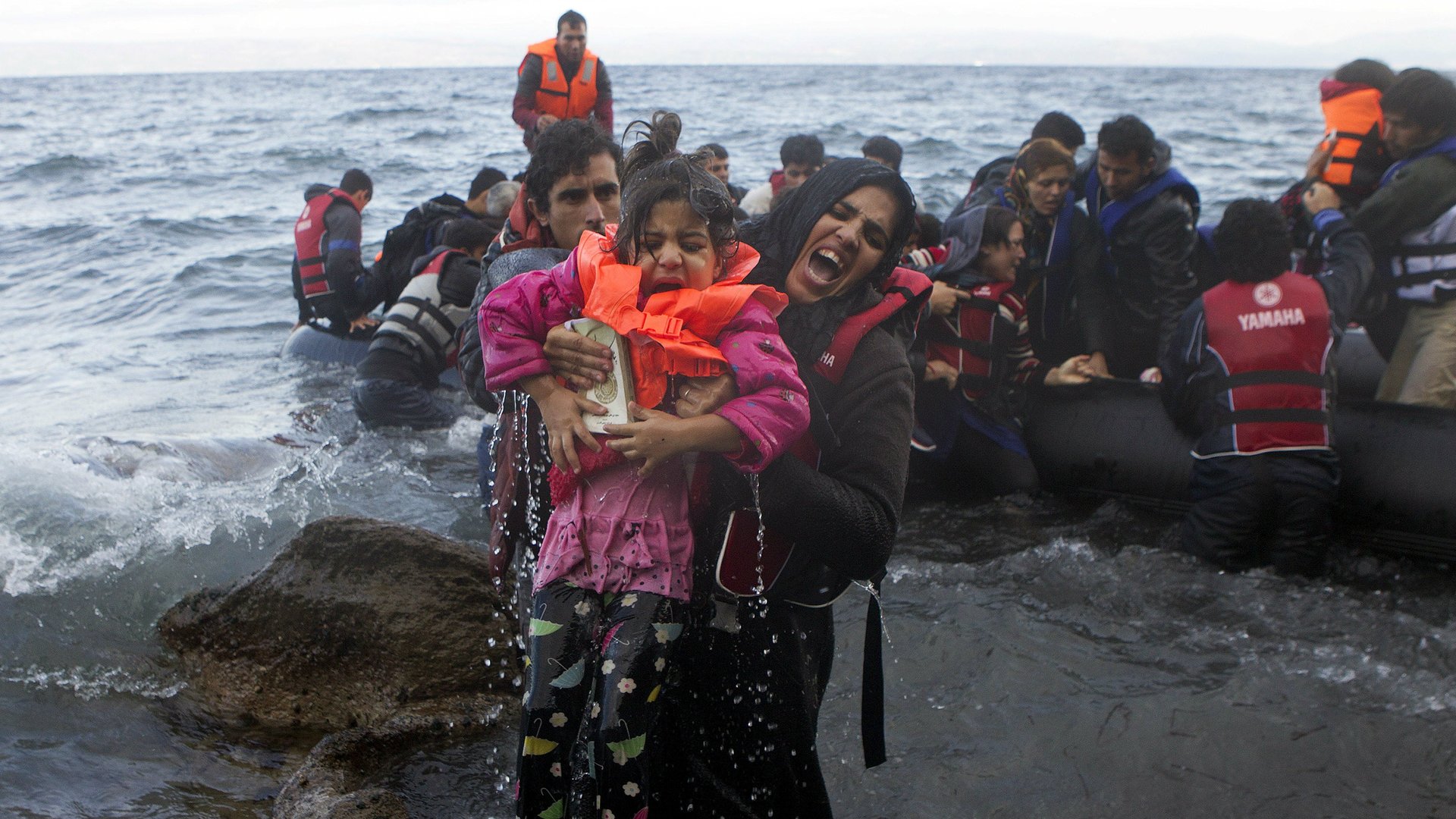Smuggling migrants into Europe is a $7 billion business, and some of that might fund terror groups
The number of people fleeing war, violence, and persecution broke records last year, with more than a million migrants crossing into Europe in 2015. This influx is big business—human smugglers made an astonishing $7 billion last year.


The number of people fleeing war, violence, and persecution broke records last year, with more than a million migrants crossing into Europe in 2015. This influx is big business—human smugglers made an astonishing $7 billion last year.
The occupation has spawned the “fastest-growing criminal market in Europe,” Rob Wainwright, director of European law enforcement agency Europol told a parliamentary hearing in Rome, Italy today (May 4). “The unprecedented inflow of migrants in 2015 led to a swift evolution in the criminal landscape,” he said.
Wainwright said he was “highly concerned” about possible links between terrorist organizations and migrant smugglers. Europol has not only observed some links in recent cases between suspected terrorists and their movement through migration channels, but is worried that terrorist organization are relying on migrant smuggling as a source of funding.
Europol has also seen connections between human smuggling of migrants and drug and human trafficking, warning that many were vulnerable of being exploited by illegal labor, prostitution, or the drugs distribution markets. At least 10,000 unaccompanied refugee children are missing, the agency estimates, with many believed to have fallen into the hands of human traffickers.
Wainwright’s statements echo a report released by Europol a few months ago, which coincided with the launch of its new European Migrant Smuggling Centre. The report notes that more than 90% of irregular migrants used a so-called “facilitation service” at some point during their journey to reach the European Union. In most cases, these services were provided by migrant smuggling networks.
Wainwright warned that criminal networks involved in migrant smuggling are likely to double or triple their revenue if the scale of the migration crisis persists. An estimated 184,546 migrants and refugees entered Europe by sea in 2016—a pace that is likely to break last year’s record.
Human rights organizations warn it’s the slow asylum process, and the growing number of routes being closed off to migrants, that is driving migrants into the hands of human smugglers. Some have called on Europe to expand safe and legal alternatives for refugees fleeing war and persecution.
Instead, the EU is pushing ahead with a controversial migrant deal with Turkey, which involves a one-for-one swap: For every Syrian in Greece sent back to Turkey, a Syrian in Turkey who qualifies for asylum is relocated somewhere in Europe.